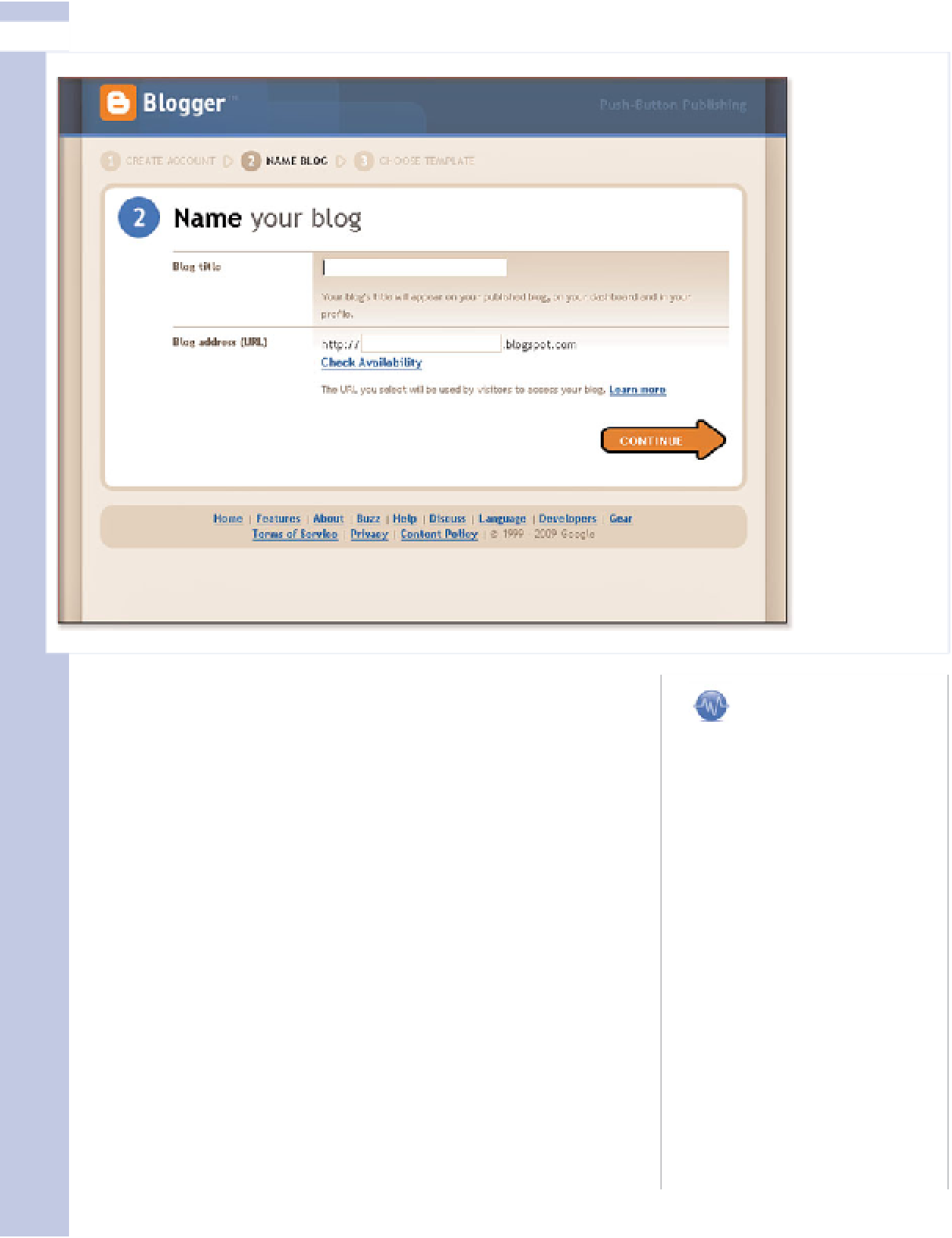Information Technology Reference
In-Depth Information
I
Figure 1.2
Blogger
makes start-
ing a blog a 1,
2, 3 process.
A simple example of a feature that Blogger doesn't support is
categories
, “buckets” that group related posts. WordPress
makes it easy to define categories and put your posts into cat-
egories, which both bloggers and blog visitors find very useful
and powerful. However, it takes a bit of focus and work to
understand, use, create, and maintain categories. By not offer-
ing categories at all, Blogger makes your blogging life easier,
if poorer.
Blogger does allow you to edit the CSS, which is where many
layout decisions are made, without paying or moving to a
hosted solution. It also allows Google AdSense ads, as you
might expect from a Google-owned blogging platform.
Features change, and some differences between platforms are
as much a matter of style as substance. However, it seems fair
to say that Blogger emphasizes simplicity over extensibility.
There's no open source aspect to Blogger, and no Blogger
community to support that. You can get your own domain
name with Blogger, but you can't download your own copy of
tip
If you want to see a detailed
comparison of blogging plat-
forms, try searching on key
magazine-style sites such as
PCmag.com, CNET, and
LifeHacker. One specific, regu-
larly updated comparison we
found is on TopTenReviews at
http://blog-services-review.
toptenreviews.com/.
It's worth doing such research
for your own purposes. It's a
necessity to do such research,
and share your findings, if you're
looking for a blogging solution
for a business or other organiza-
tion, which will affect a number
of people and will need sign-off
at several levels.



